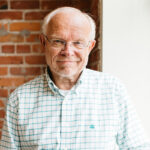It was thirty-two years ago, and the memory is still strong. I was in my second year as campus pastor at my alma mater in St. Paul. A beloved faculty member was fired just days before the start of the school year. We became a community in pain, crisis, and conflict. Emotions were running high, and feelings were deep, and we needed to be ready for the students to watch us as we taught by our actions, words, and reactions. I wrote a pastoral letter to the community asking for calm and redemptive love as we muddled our way forward. The stakes are even higher for us in our divisions across our nation. I’ll share some of what I wrote then, never thinking it might apply so intensely today.
Two options
There are two options that lie before us all in a time of dissension: to destroy or to create. Used creatively, conflict can become a source of understanding. Used destructively, conflict can tear us apart from our spiritual rootedness in God’s love. It makes a difference in how we live with one another in times of stress and conflict….
It means I cannot merely seek my own way, position, and agenda. I am compelled by love to listen to differences with respect and to seek mutual reconciliation whenever possible. Isaiah 11:9 says, “They will not hurt or destroy on all my holy mountain….” I take that to be a word to us all in the midst of controversies—we too must be careful not to hurt or destroy one another.
Let us be careful…
An award was offered in an art competition for the best depiction of peace. The winning painting showed a rugged ocean cliff, storms raging above, rain pelting down, waves splashing angrily against the cliff, and in the midst of the stormy scene, a bird building a nest on a small ledge of the cliff.
- In our anger, let us be careful not to sin.
- In our differences, let us be careful not to condemn one another.
- In our conflict, let us be careful not to make one another an enemy whom I must overwhelm and defeat, but rather always to see each other as we are—sisters and brothers in Jesus.
- In our pain, let us be careful not to inflict undue hurt on one another, but rather seek to find healing for us all.
“I am convinced that we are like that bird building a nest in the midst of a great storm. The students whom we teach need us to be people of wisdom and maturity; to be people of compassion and respect…We dare not deteriorate into factions who no longer listen, who no longer respect, who no longer seek to be people of love, shalom, and humility.”[1]
We all have “students”
We may not be professors or college administrators, but we all have “students” who watch us as we teach by our actions, words, and reactions. Never ever forget that we “teach” most profoundly in times of dissension when discourse seems to go to die. We will do our best teaching as we practice conviction and discourse…in the name and way of Jesus.
I’ve always been intrigued by the way Carlyle Marney dedicated one of his books: “To Victor, who agreed with me in nothing and is my friend in everything.”[2] May I remember to practice what I learned from him, a teacher to me always in his preaching.
_________________________________

Keith Anderson, D.Min., is a Faculty Associate for Spirituality and Vocation at VantagePoint3 and President Emeritus of Seattle School of Theology and Psychology and is the author of several books, including Reading Your Life’s Story (IVP, 2016), A Spirituality of Listening (IVP, 2016), and Spiritual Mentoring (IVP, 1999). Keith’s newest book, On Holy Ground: Your Story of Identity, Belonging and Sacred Purpose, will soon be released from Wipf & Stock Publishers. In his writing, teaching, and mentoring, Keith seeks to set a table for people looking to enter the “amazing inner sanctuary of the soul” in the most ordinary and extraordinary moments of life.
[1] Keith R. Anderson, Memorandum from Campus Ministries, 8/31/92.
[2] Ibid.

